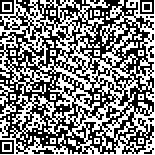| 摘要: |
| [摘要] 目的 探讨原发性高血压患者血压晨峰现象与静息心率和主要靶器官损害的相关性及其临床意义。方法 采用24 h动态血压监测仪(ABPM)分析88例原发性高血压患者的血压,确认晨峰组与非晨峰组,均常规检查血脂、空腹血糖、动态心电图(HOLTER),计算体重指数(BMI),左室质量指数(LVMI),取HOLTER记录的早晨6∶00的心率为静息心率(RHR)。结果 晨峰组的24 h白昼、夜间平均收缩压均显著高于非晨峰组动态血压监测水平(P<0.05),晨峰组的LVMI、RHR均高于非晨峰组(P<0.05)。结论 原发性高血压患者伴血压晨峰有显著静息心率加快和靶器官损害加重等表现,因此遏制原发性高血压患者的晨峰反应对降压达标、减少恶性心脑血管事件的发生具有重要意义。 |
| 关键词: 血压晨峰 静息心率 靶器官损害 动态血压监测 |
| DOI:10.3969/j.issn.1674-3806.2010.08.16 |
| 分类号:R 544.1 |
| 基金项目: |
|
| The correlation between morning blood pressure surge and resting heart rate,and the influence on target organs in patients with essential hypertention |
|
FANG Ling, GAO Chao, BAO Guo-ping, et al.
|
|
Department of Cardiovascular Disease, the Second Hospital of Hefei, Anhui 230011,China
|
| Abstract: |
| [Abstract] Objective To investigate the correlation between morning blood pressure surge and resting heart rate, and the influence on target organs in patients with essential hypertention. Methods According to 24 h ambulatory blood pressure monitoring profiles, 88 cases were divided into morning blood pressure surge group (surge group) and morning blood pressure normal group (normal group). The levels of cholesterol, body mass index (BMI), left ventricular mass index (LVMI) were detected. HOLTER were used for recording the RHR. Results The blood pressure of whole day, day and night in surge group were significantly higher than those in normal group. Morning systolic blood pressure-variability was significantly higher. LVMI and RHR in surge group were higher than those in normal group (P<0.05). There was no differece between two groups in age, BMI (P>0.05). Conclusion Morning blood pressure surge can increase RHR, and LVMI also increase obviously. So lowering the morning blood pressure surge is a sensible way in hypertension management. |
| Key words: Morning blood pressure surge RHR Target organ damage Ambulatory blood pressure monitoring |

